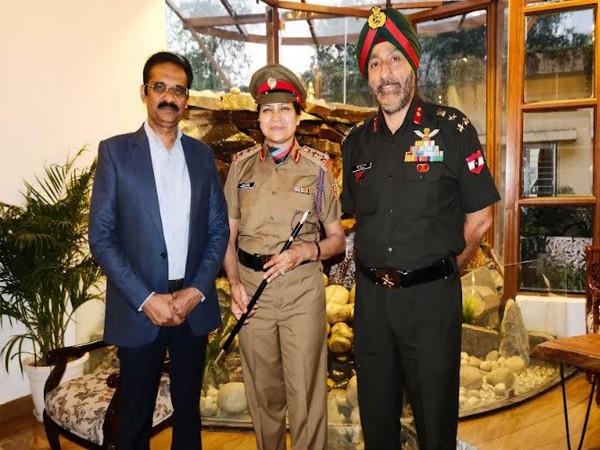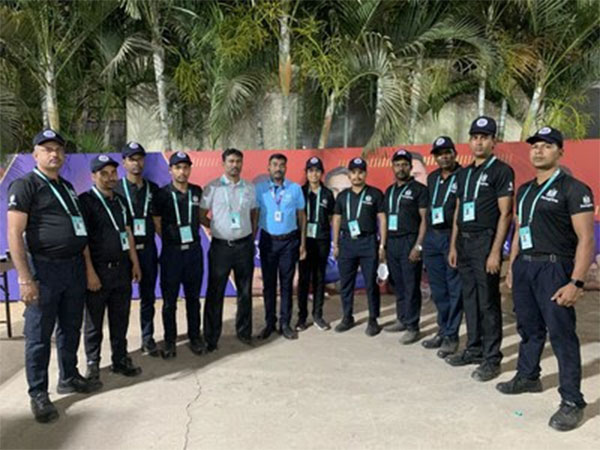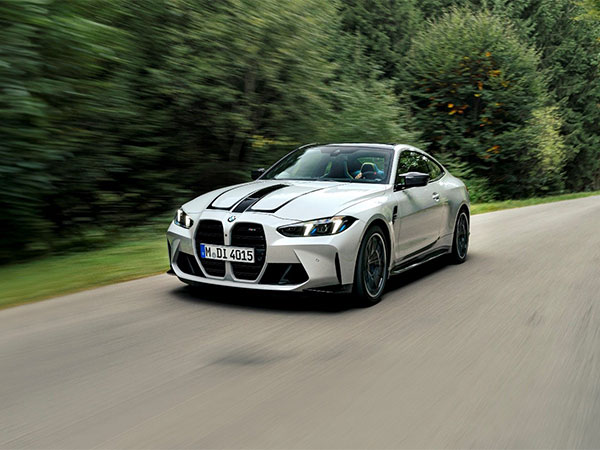
Torched church, mosque mark trauma in Nigeria
Feb 13, 2024
Abuja [Nigeria], February 13: The charred yellow arches and rubble-strewn floor of Mangu's large central mosque mark the ferocity of violence unleashed last month in the northern Nigerian town. On the other side of Mangu, the burned-out shell of the Cocin Kwhagas Lahir church shows Christians were not spared either.
Corrugated sheets flap in the wind where the church roof once was, and a white plastic chair lies toppled in the grey ash carpeting the floor. For years, the town mostly escaped the intercommunal violence that often erupts in north central Plateau State. Mangu's Muslims and Christians belonged to the same tribe, the same families, lived on the same streets and shopped and traded in the same markets.
But in late January, the small farming town was ravaged by attacks and reprisals as assailants raided rival districts with guns and machetes. Neighbor turned on neighbor and churches, mosques and schools were destroyed, according a Red Cross report and residents.
At least 25 people were killed in the Mangu violence which erupted on the same day as an attack on a predominately Christian village nearby, where 30 people died. The violence followed string of Christmas attacks in a neighboring district that left almost 200 people dead. Two weeks after the day of violence, many in Mangu were still in shock over how the town turned against itself and few have clear answers on why religious harmony was shattered. Standing in the torched remains of his family home, Jabira Rabio said an armed mob attacked his community on the outskirts of the town, firing gunshots and moving to another community and torching homes. "We just fled with our clothes. All the belongings were burned in my house," the livestock seller said. His home's burned pink walls now surround floors covered in ash. A few smashed plates, his son's scorched marriage outfit and a charred piece of red carpet are all that remain. "We can't say what happened. It happened so suddenly. We've always coexisted peacefully," he said.
Across Mangu, conflicting accounts emerge: Some say groups of masked, armed men surrounded districts and torched homes, others say residents beat neighbors in retaliation and set churches and mosques on fire.
Sitting on the division between Nigeria's mostly Muslim north and predominantly Christian south, Plateau State has struggled for years with intercommunal and ethnic strife. In rural areas, Fulani Muslim herders clash with ethnic Mwaghavul farmers, who are mostly Christian, in an increasing dispute over land, water and cattle grazing. Mangu is a mostly ethnic Mwaghavul town, but both religions live side by side.
Safer neighborhood
In the Lahir district, the Cocin church was torched and dozens of nearby Christian homes also burned down, residents said. Many of them left for a more predominantly Christian neighborhood. "Most of the Christians from my area vacated to this area. I feel safer here, it's mostly Christian," said Gideon Timothy, 33, a music producer.
"They are so many reasons, farmers and herders, maybe just for the land, it could be so many things, but now it turned into ethno-religious. People are burning churches. It really surprises me. I never expected that." According to an internal Red Cross report seen by AFP, more than 8,000 people were displaced by the fighting in Mangu and areas around the town. Victims had gunshot and machete wounds, it said. Many of those have relocated to other areas in the town to stay with family. Some Muslims were at another mosque seeking help. Atika Bello fled the home where she lived for 25 years in Mangu's old market area when gunshots broke out on the first day of violence. She hid in her mother's house with five of her children. "There were gunshots and we just prayed and prayed and prayed throughout the day and there was no security," she said.
"I can't let it affect me. I can't leave Mangu, I will remain here forever." Denis Mutkires said he was only alive because a Muslim neighbor allowed him to hide in his home and leave through a back entrance to escape a mob. He made it out after taking machete blows that left him in hospital in the state capital Jos for more than a week.
Now back at a relative's home, his own house in Lahir district has been destroyed and his car burned. "The neighbor, he is a Muslim brother, he opened his gate. They hid me in their house," he said. "I managed to escape, otherwise the story might have been quite different." - AFP
Source: Kuwait Times









